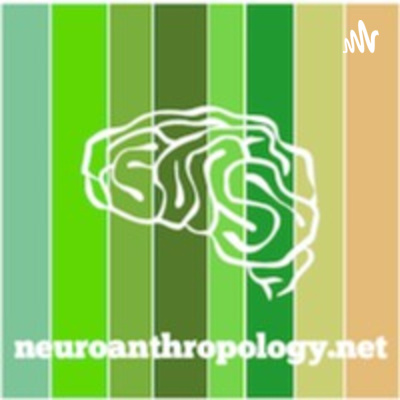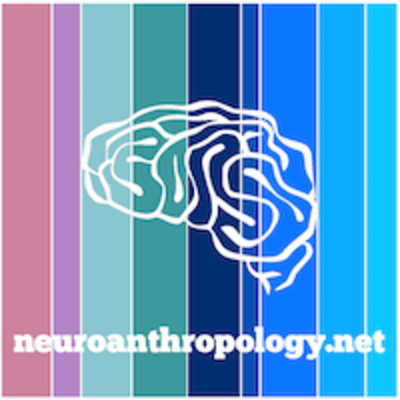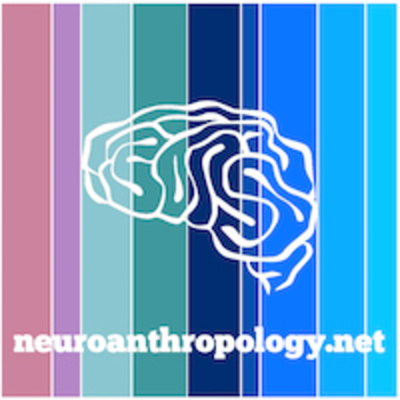
Neuroanthropology.net Podcast
By Greg Downey
Based on the blog Neuroanthropology.net, Greg Downey and Daniel Lende explore the implications of new findings in anthropology and the neurosciences for our understanding of culture, human development, and behaviour.

Neuroanthropology.net PodcastAug 16, 2021

Human (amphibious model): living in and on the water - Neuuroanthropology.net Podcast
Free divers, sea foraging groups, and amphibious humans point to the most basic fact of human nature: that we seem particularly adept at finding ways to adapt ourselves – biologically, psychologically, behaviourally, technologically – to a host of niches that then rebound back upon us and shape how we develop. We are a peculiar self-made species.

Getting around by sound: Human echolocation -- Neuroanthropology.net Podcast
In 2011 in PLoS ONE, Lore Thaler from the University of Western Ontario, with Stephen Arnott and Melvyn Goodale, rIn a recent edition of PLoS ONE, Lore Thaler from the University of Western Ontario, with Stephen Arnott and Melvyn Goodale, reported brain imaging research that tried to sort out how individuals who can echolocate – who have what one blind activist calls ‘flash sonar’ – accomplished this perception neurologically. Did they use an especially acute sense of hearing, or did they develop another kind of sense, able to transform echoes into spatial perception?
What the researchers found, in short, was that blind individuals who could echolocate did not really have better ‘hearing’; on normal tests of hearing acuity, they scored the same as sighted subjects who could not echolocate. However, when a recording had echoes, parts of the brain associated with visual perception in sighted individuals became extremely active, as the echolocators were able to extract information from the echoes that was seemingly not accessible to the control subjects who were sighted. This piece explores the implications of human echolocation for sensory anthropology.

Giving names to aromas in Aslian languages - Neuroanthropology.net blog
The human sense of smell is far more acute than we might realize, and linguistic research emerging from a cluster of groups in southeast Asia and other locations suggests that, for many of us, our inability to smell might be a cultural problem, not an invariant fact of human nature. Our language may hamper our ability to perceive aroma.
From 2014, this discussion of languages with rich sensory vocabularies for aroma discusses the effects of social processes of focusing the attention on sensation, including how we might cultivate our senses in diverse ways in different language communities.

Life in the Dark - Neuroanthropology.net
The photos of Peter DiCampo (click here for Peter’s website), an American freelance photographer and former members of the Peace Corps who volunteered in the village of Voggu in rural Ghana, highlighted for me the effect of artificial life on human experience. His photo essay, Full Frame: Life without lights, at Global Post, an online American newspaper included beautiful images of life by flashlight, candle and gaslight, capturing the atmosphere in this part of Ghana without electricity. This essay explores some of the research on the way that artificial life can impact human experience and our nervous system.
This episode is also available as a blog post: http://neuroanthropology.net/2021/08/16/life-in-the-dark/